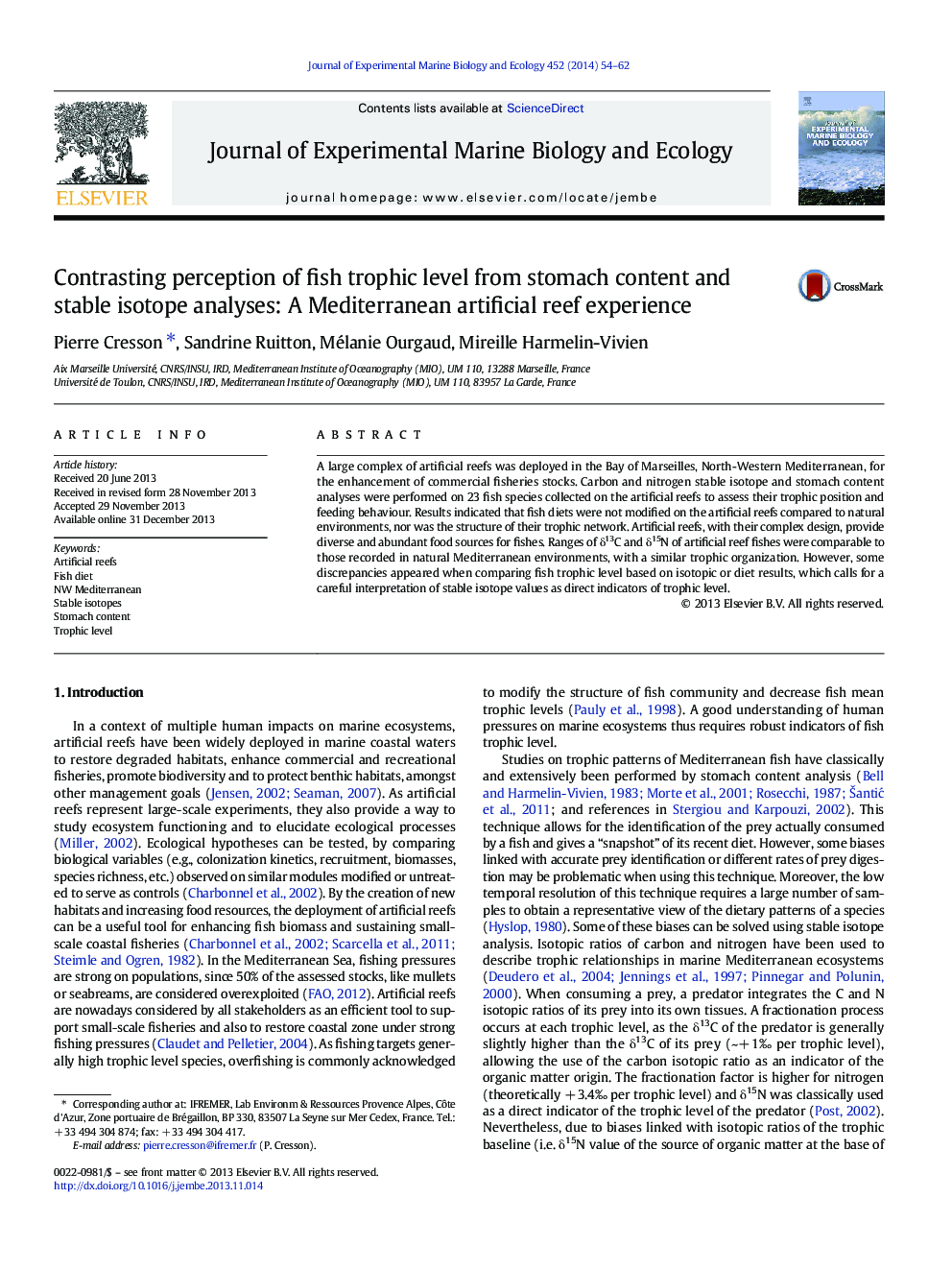| کد مقاله | کد نشریه | سال انتشار | مقاله انگلیسی | نسخه تمام متن |
|---|---|---|---|---|
| 4395554 | 1618423 | 2014 | 9 صفحه PDF | دانلود رایگان |
• Fish diets were assessed on artificial reefs.
• Stomach content and stable isotope data are similar to those of natural environments.
• Artificial reefs provide diverse food sources for fishes, particularly crustaceans.
• Discrepancy may occur between δ15N and fish diet.
• Trophic level estimation should not be based on δ15N value alone.
A large complex of artificial reefs was deployed in the Bay of Marseilles, North-Western Mediterranean, for the enhancement of commercial fisheries stocks. Carbon and nitrogen stable isotope and stomach content analyses were performed on 23 fish species collected on the artificial reefs to assess their trophic position and feeding behaviour. Results indicated that fish diets were not modified on the artificial reefs compared to natural environments, nor was the structure of their trophic network. Artificial reefs, with their complex design, provide diverse and abundant food sources for fishes. Ranges of δ13C and δ15N of artificial reef fishes were comparable to those recorded in natural Mediterranean environments, with a similar trophic organization. However, some discrepancies appeared when comparing fish trophic level based on isotopic or diet results, which calls for a careful interpretation of stable isotope values as direct indicators of trophic level.
Journal: Journal of Experimental Marine Biology and Ecology - Volume 452, March 2014, Pages 54–62
